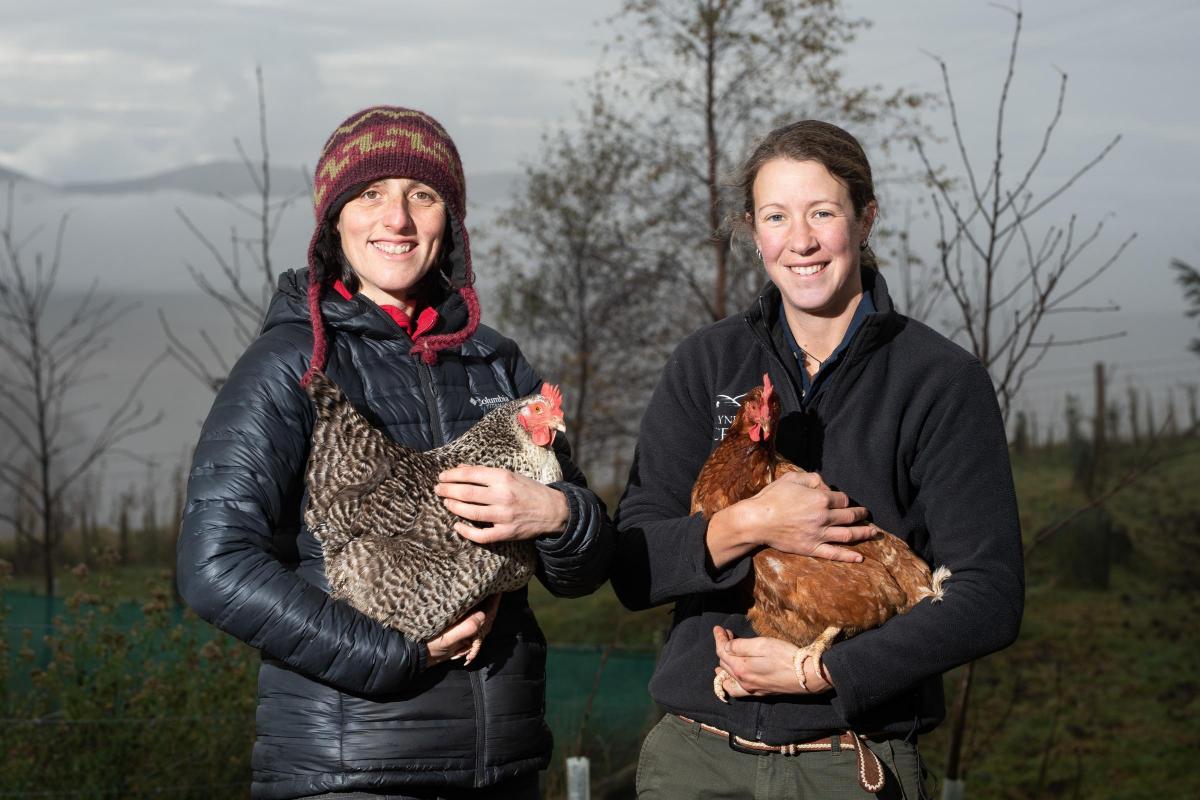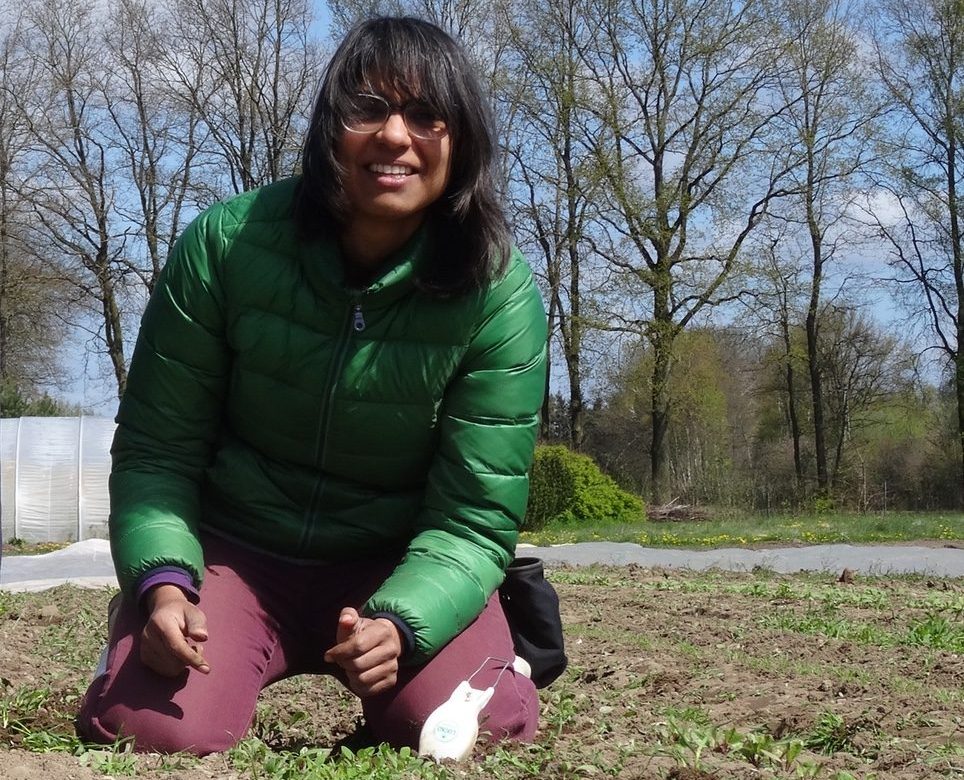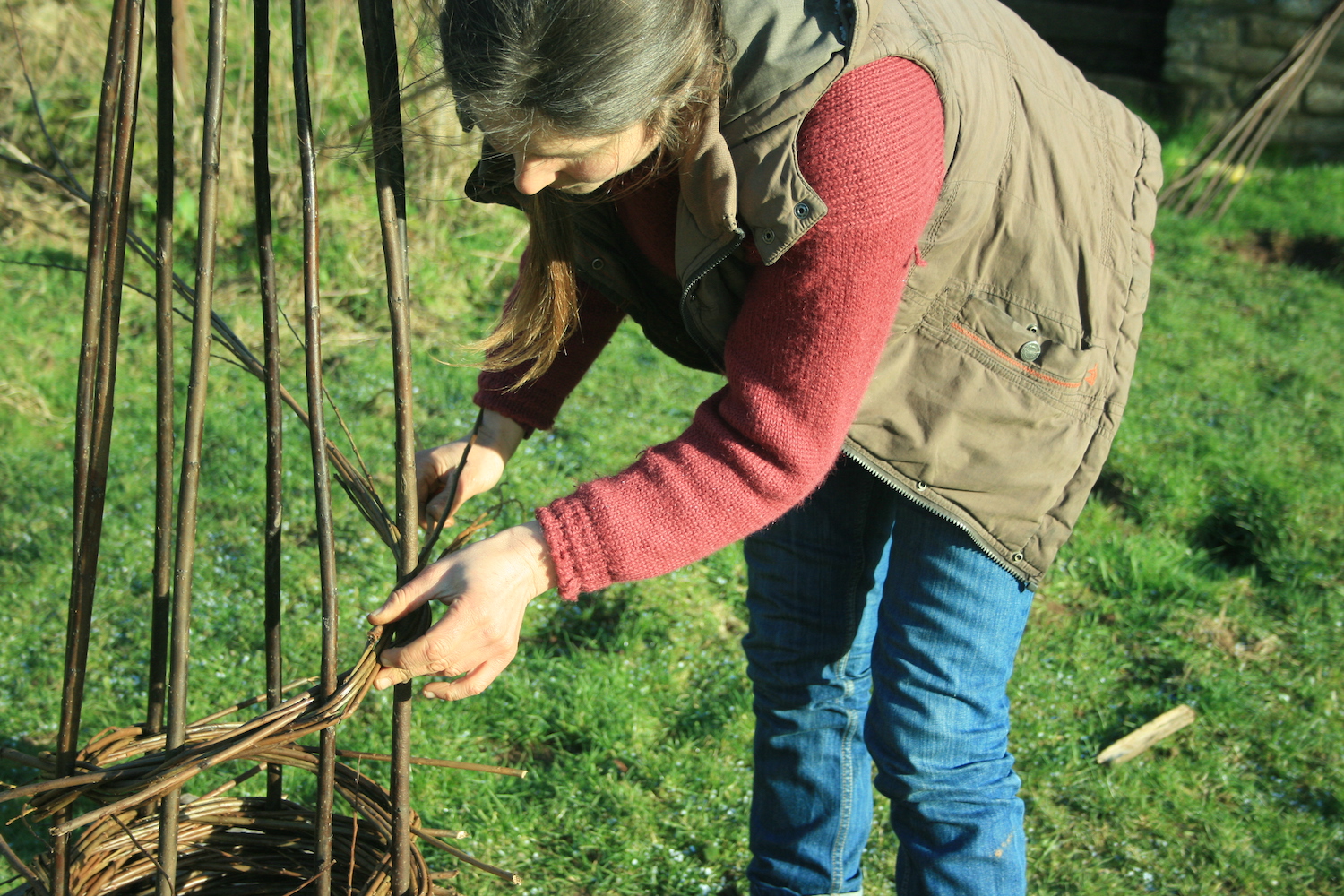This International Women’s Day, we wanted to take a moment to celebrate some of the inspiring and hard working women within the Landworkers’ Alliance, and hear about their journey to where they are and their hopes for the year ahead. Meet four landworkers who have inspired us this year…
LYNN CASSELLS AND SANDRA BAER, LYBRECK CROFT
Leaving careers as an archaeologist and librarian to training as rangers with the National Trust (where they met), Lynn and Sandra now run an award-winning 59 hectare farm in the Scottish Highlands.

What do you enjoy about working in farming?
We share a deep passion for nature and we love nothing more than to be outside. It makes us happy and content. Over the last few years, we’ve developed a real interest in food – where it comes from and the impact on the environment. We’ve started to connect the dots and now understand that the best food is produced by nature, and if we can harness that power, we can provide the best food for our community. It’s an honour and a privilege to live like this.
What are you most proud of in your work or your journey to this point?
I think we are most proud of how we’ve built a new business from scratch, with no money and no real experience. We’ve tried to tell our story along the way and build a positive conversation around what we are trying to do here. We are also, individually, proud of one another. We each have our own skillset and contribute differently but that has enabled us to grow individually and to combine our specialisms into a partnership powerhouse!
Do you think there are any changes needed around making landworking more inclusive?
We think that there could definitely be changes to make landworking more inclusive – we should spend more time celebrating our similarities rather than criticising our differences. We are huge advocates of the importance of smallholding, crofting and small scale farming. These small units can produce large amounts of food, become havens for wildlife and a place for people to reconnect with the land and where their food comes from
What are your hopes for the year ahead?
We have a few exciting projects in the pipeline for 2020. We hope to renovate our old croft house into a holiday rental and we’re running more croft tours and our first ‘How to Farm’ courses. We want to keep working on our butchery skills and make our produce even better for our customers. Ultimately we want to keep sharing a positive message of farming in a way that works with nature and produces food for our community. And we want to keep waking up every day, feeling happy and so fortunate to live how we do at Lynbreck.

SEETA RAJANI, FORTY HALL FARM
From engineering to sustainable development, Seeta’s route into farming wasn’t straightforward. After co-founding Sutton Community Farm and working at OrganicLea Community Growers, she is now assistant grower at Forty Hall Farm, an 8-acre market garden in London.
What are you most proud of in your work or your journey to this point?
What I am most proud of in my journey is the acceptance and understanding I have been able to achieve from my family. Having grown up with two Indian parents, who have very strong Indian values, which in my case centred around making good money and looking after ourselves alone, it took many years of conversation, resilience and persistence to achieve recognition for the work I do.
Where for years my ancestors worked hard to remove themselves from the land and find work which meant that their children could get an education and where they didn’t need to work physically as hard, it was difficult for my family to understand why I would want to work so hard and get paid so little. Even now, my extended family don’t really understand why I do the work that I do, and what it is I’m trying to achieve longer term. However, I’ve started to have these difficult conversations with my my aunts, uncles and cousins too. Hoping to broaden their understanding of the world and what the future might hold.
What has been your experience of being a female landworker?
Being a woman in any industry that is male dominated has been a challenge. However, I feel very lucky to have often worked with women and non-binary people who have truly shown me that anything is possible if you put your mind to it and work hard. And as a woman, we can make it happen in a way where we value everyone and where all are treated equally.
Do you think there are any changes needed around making landworking more inclusive?
I know that one of the reasons I have been able to move into this sector is because of my privilege. Being middle class and coming from a family with strong Indian family values, made it possible for me to pursue landworking as I received an education that made it possible for me to have choices that other people from minority backgrounds do not always have. I believe that to really be able to make any difference to minority groups accessing landworking as a valid career, as well as accessing land, we need to support horticulture as an important and respectable career. We need to have more role models that show that farmers feed us all and we as a culture need to recognise our food producers as essential to our society. We need to be proud of what we do, take back our voice, so that we can be heard and seen, be accepted and feel at home in rural settings, and be able to live off the land in ways which care for the soil, the surrounding biodiversity & ourselves.
What are your hopes for the year ahead?
The next stage in my journey is to find land to live on and grow on. Last year I put in an offer on a piece of land, but unfortunately the sale fell through. This year, I hope to be able to find the land and home that I want so that I can start my own business, growing for the community and keep moving towards changing the food system into one that is sustainable and supporting small scale farmers into the future.
AMY COX, SELF EMPLOYED FORESTER
Growing up with passion for trees and craft in her bones, after working at various woodland projects and completing an apprenticeship at the Cherry Wood Project, she now works in ancient and newer woodland around Gloucestershire.

What do you enjoy about working in farming/forestry?
I have witnessed the healing power of trees and of land based work both on a personal level and in working with groups and this is a large motivator for me working in the sector. I also enjoy the physicality of forestry, the sweat, the adrenaline. Felling trees at its best is like a mediation, requiring complete clarity and calm.
What are you most proud of in your work or your journey to this point?
I’m happy to have got to a point where I don’t feel the need to prove myself anymore. I’m proud of the work I’ve done around role modelling to children and teenagers challenging gender stereotypes and opening up landwork as a lifestyle choice or career path for all genders.
What has been your experience of being a female landworker?
As things stand, a woman in forestry is in the minority and although I have felt accepted as an equal by the men I have worked with; I have experienced a need to prove myself. It’s like I’ve had an inner patriarchal voice telling me “you’re not good/strong/fast enough”. With time and experience, the voices have quietened but I have remained in the minority, which has felt both empowering to fly the torch for women and isolating and lonely at times. I would advocate the need some high profile female role models and a national campaign drawing this into the light, and presenting the multi facets of the forestry industry as a potential and viable option for all genders.
Who inspires you?
I take my inspiration from the wisdom of trees; a windswept hawthorn standing its ground in a cliff top wind, a willow struck by lightning that just keeps on growing against all odds, a mighty oak housing hundreds of insects, lichen and birds…

